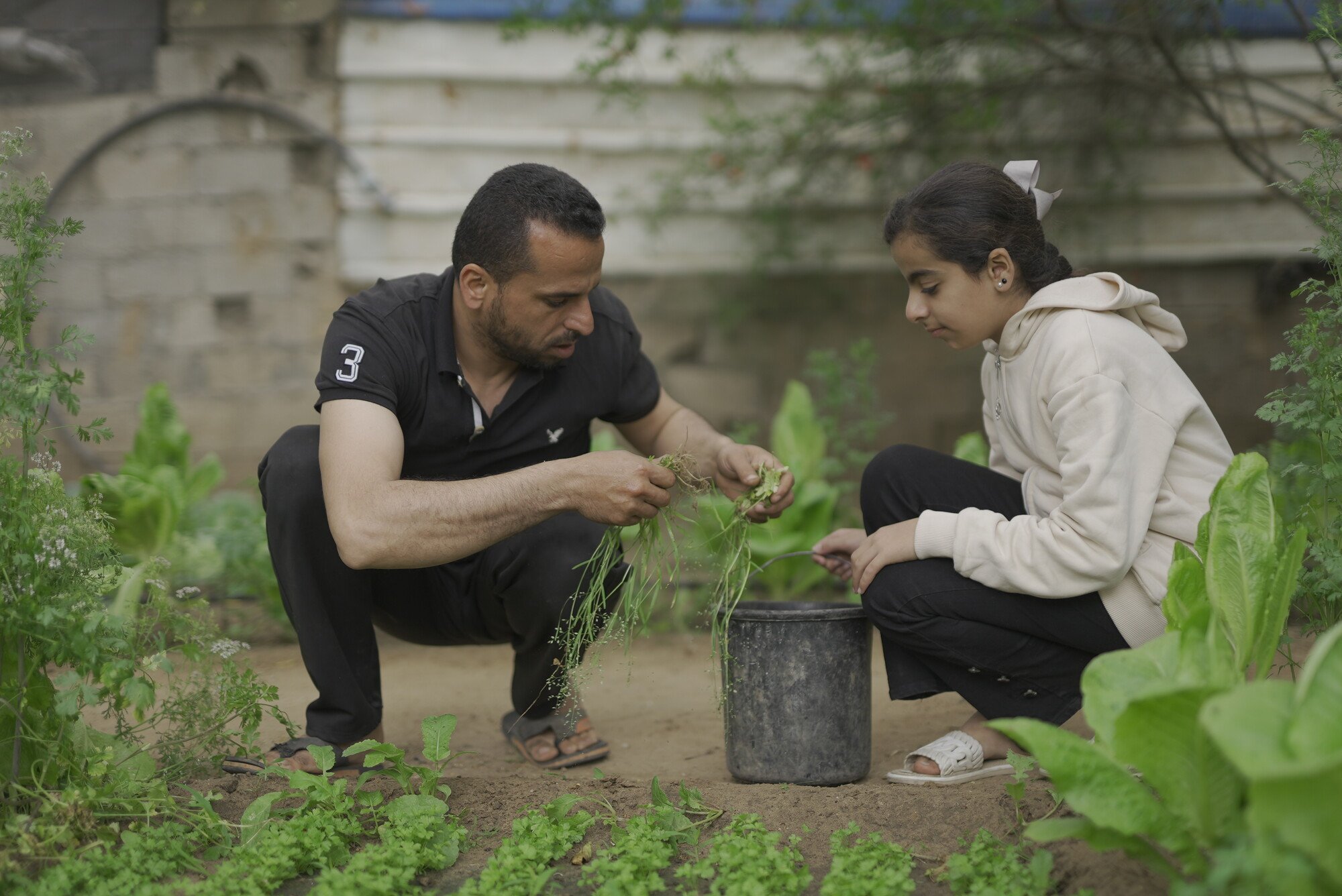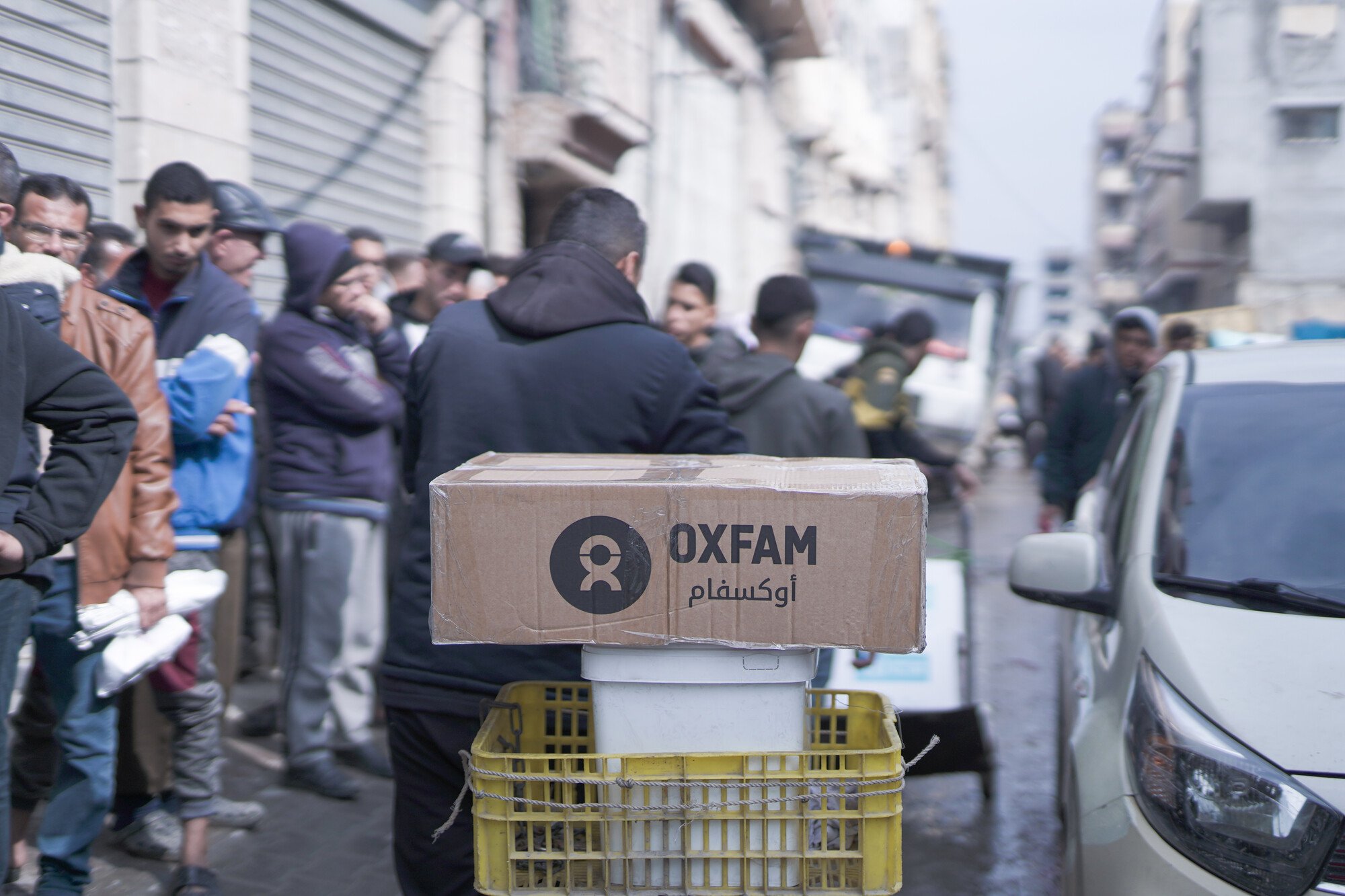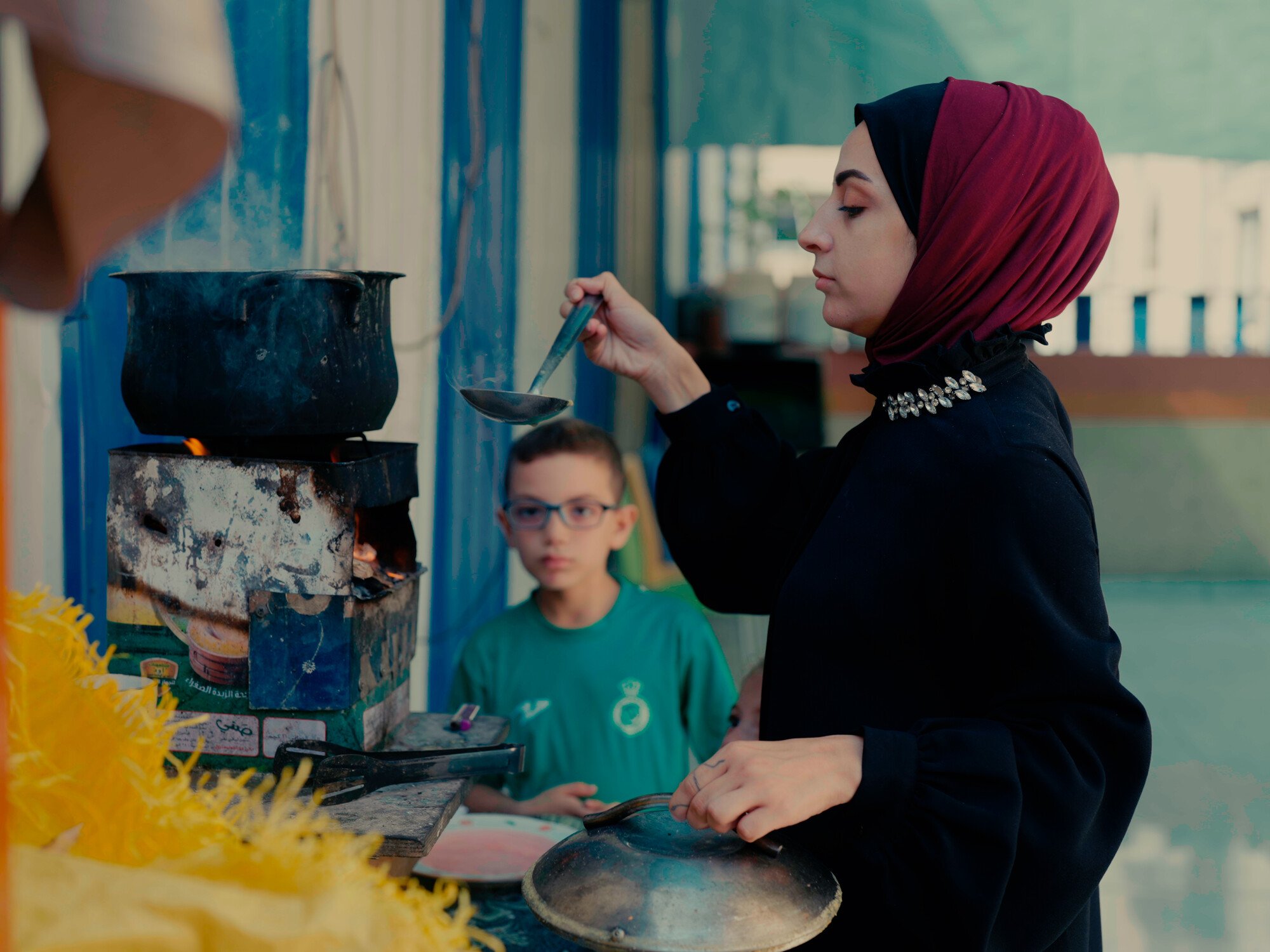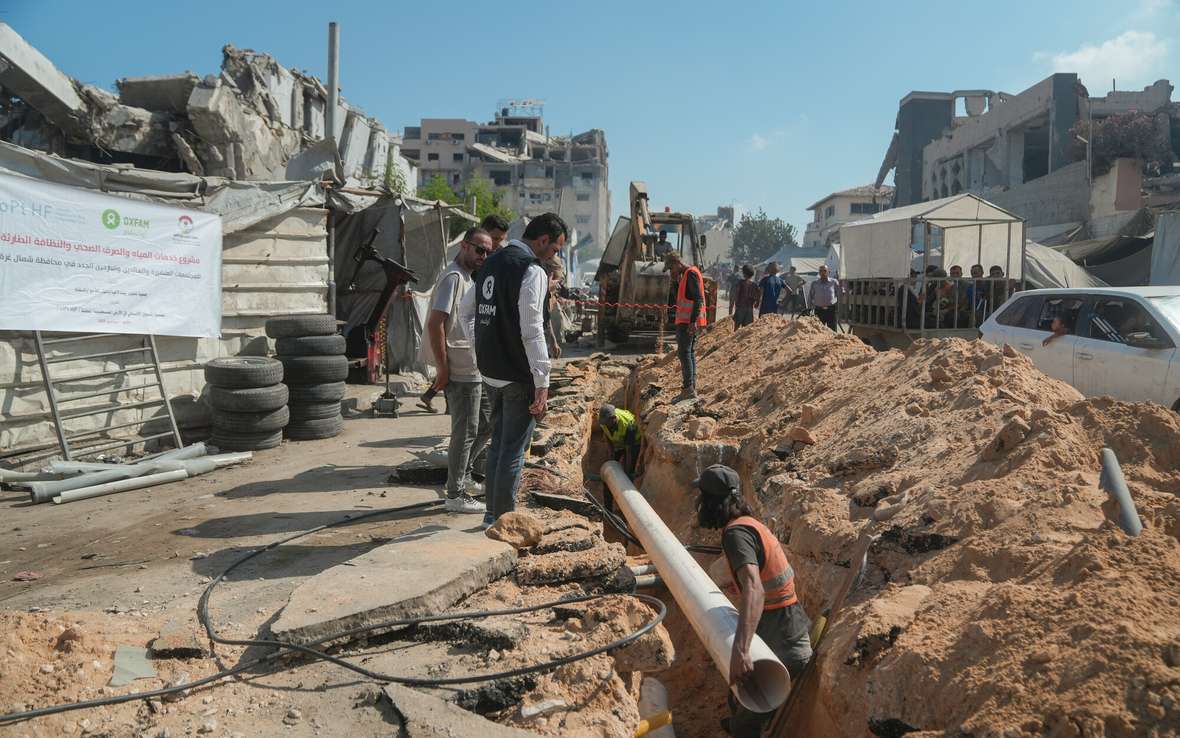Oxfam and partners continue their work to help Palestinians amidst ongoing violence, and aid blockade driving suffering and spreading famine.
As the war in Gaza progressed into its second year, Sami watched his family suffer from malnutrition.
“My son got sick, and he became very thin,” Sami explains. “I didn’t know what to do. I didn’t know what to feed him.”
Looking for help, he went to his brother, a doctor. “I told him my son was ill, and he told me ‘feed him any kind of vegetables. Grow vegetables.’”
Sami immediately got to work, looking for any vegetable seeds in local markets. He planted chard, parsley, and arugula. But he had no experience as a vegetable gardener, and it was difficult to produce much food.

Sami found help from the Palestinian Agricultural Development Association (PARC), working in partnership with Oxfam. “They began organizing visits … they supported us with seedlings, fertilizers, and chemicals. I began feeding 20 households, my brothers and their children.”
Dire situation in Gaza
Oxfam, PARC, and other organizations in Gaza have continued to assist 130 home gardeners like Sami in Gaza, as well as another 150 commercial farmers with seeds, tools, fertilizer, and other assistance designed to help people grow food and alleviate widespread hunger.
However, the delivery of other forms of humanitarian aid has faced extraordinary obstacles imposed by the government of Israel since the ceasefire ended in March 2025, beginning a period of nearly complete aid blockade and continued violence in the Gaza Strip.
The situation in Gaza is now more dire than ever:
- There are still 48 Israeli hostages remaining in Gaza, while nearly 65,000 Palestinians have been killed, and roughly 2 million people have been displaced — many of them on multiple occasions.
- More than half a million people in Gaza currently face catastrophic conditions, characterized by starvation, destitution, and death. Another 1.07 million people — 54 percent of the population — are facing emergency levels of hunger.
- In August 2025, the Integrated Food Security Phase Classification confirmed famine in parts of Gaza, and warned it could spread in the coming weeks.
Despite the dangers and operational hurdles, Oxfam staff and 20 partner organizations are working heroically to respond in Gaza and the West Bank. Since October 2023, Oxfam partners have reached 1.1 million people, and have provided:
- Baskets of locally grown vegetables (in the early months of the conflict), and ready-to-eat food rations.
- Clean water, distributed by truck, and in new and rehabilitated wells, solar-powered pumps and water treatment systems, as well as by means of repaired municipal water systems.
- Construction and installation (and desludging) of latrines, sewage system repairs, and distribution of hygiene kits with soap and menstrual items.
- Help for women and girls surviving sexual and psychological violence to access social services, providing referrals to service providers, and counseling. Oxfam partners are also providing legal aid, and training sessions about child protection and reducing the risk of gender violence.
Advocating for a ceasefire
Since the horrific events of October 7 in 2023, Oxfam has been advocating for the safe return of all hostages and illegally detained individuals, a permanent ceasefire, and full access for humanitarian aid in Gaza.
- In the United States, we are urging the government to stop the transfer of offensive arms to Israel, which has impeded aid and committed violations of international humanitarian law.
- Since October 2023, Oxfam has mobilized 71,000 supporters who have called and sent emails to President Trump and their members of Congress, and signed petitions to urge the U.S. government to demand an immediate ceasefire, end the sales of weapons to Israel, release hostages and unlawfully detained prisoners, and to take actions to stop the famine in Gaza.
- Oxfam has produced research reports on ways Israel is deliberately blocking humanitarian assistance in Gaza, and weaponizing access to water during the conflict.
Through its systemic obstruction of aid, the government of Israel has created a chronic shortage of food, water, medicines, and basic services, including healthcare, across Gaza. According to multiple, credible legal analyses, this obstruction is a key component in Israel’s commission of genocide in Gaza.

The United States can play a crucial role in ending the suffering in Gaza, says Oxfam’s Director of Peace & Security, Scott Paul. “The Trump administration must do all in its power to reach an immediate, permanent ceasefire, ensure there is a sustained surge of aid, and the release of all hostages and illegally detained prisoners. The U.S. should suspend offensive arms sales to Israel now. There is not a second to waste while more people die from starvation every day.”
Continued displacement
As the conflict in Gaza approaches the two-year mark, in September Israeli forces have entered Gaza City and ordered its entire 1 million population to relocate to the south.
“The ongoing displacement orders and the push of people deeper into “humanitarian zones” — which we know have never been safe at all — means it becomes almost impossible to deliver aid effectively. Israel’s siege and severe limitations placed on the entry of aid also means people already in these zones lack the most basic of services even before hundreds of thousands more are forced into the same area,” said Ruth James, Oxfam’s humanitarian coordinator, speaking from Gaza.
Oxfam staff and partners also face constant risk. In early September, “an Israeli attack near the headquarters of the Aisha Association for Woman and Child Protection in Gaza City resulted in the killing of one of the employees, a pregnant woman, and a 7-year-old boy and critically injuring many others,” read a press statement released by Oxfam.

Ultimately, a permanent ceasefire is the only way to end the tragic loss of life in Gaza, so humanitarian groups can do their work. Sami, who is committed to continue producing vegetables in the garden next to his home after the conflict ends, wants peace as soon as possible.
“We hope the war will end today, not tomorrow,” he says.
